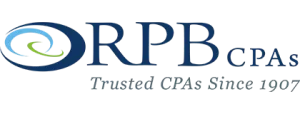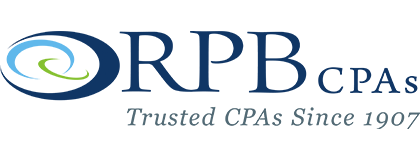Forensic Services
Fraud is an overlooked area in most organizations. A typical fraud scheme can last several years, and most are discovered accidentally. The tangible losses are often very high; however, there can certainly be intangible issues that surface when fraud is uncovered. For example, do you prosecute? Will the physical cost of prosecution or the potential publicity that may come from it be more costly than the theft itself?
Uncover Fraud with a Forensic Accounting Firm
Forensic accounting (also referred to as investigative accounting) is an examination and evaluation of a company’s or individual’s financial information for use as evidence in court. The information gathered is used to prosecute claims of corruption, asset misappropriation, financial statement fraud, or other nefarious financial activities. In short, forensic accounting helps uncover common tricks corporate accountants use to make businesses look better than they actually are.
The RPB Difference: Expert, Process-Driven Forensic Accountants
As the oldest registered CPA firm in Wisconsin—and with a Certified Fraud Examiner on staff—we’re equipped to handle the most complex forensic accounting audits. Drawing from our deep well of experience and tried-and-true investigative accounting process outlined below, we’ll help uncover any illicit financial activity, compile it into an easy-to-understand report, present the evidence in court if necessary, and set up a prevention system to discourage future fraud attempts. Here’s a more in-depth look at this process:
-
- Planning – RPB’s seasoned team of forensic accountants are experts at planning for an investigation. Here we’ll figure out how to identify the type of fraud, how long it’s been in practice, how it’s been concealed, who the perpetrators are, and the quantity of financial loss.
-
- Gathering Evidence – Our forensic accountants are skilled in the techniques used to collect evidence, including testing controls to identifying process weaknesses; analytical procedures to compare trends over time; computer-assisted techniques to identify timing and location of relevant details; and interviewing employees.
-
- Reporting – We’ll compile everything we find into a concise, easy-to-understand report that includes a summary of evidence and the amount of loss suffered. The report will also discuss how the fraud scheme was set up, and which internal controls, if any, were circumvented. We’ll even provide advice on how to prevent reoccurrences of fraud.
-
- Litigation Support – This is where experience comes in handy. If necessary, our forensic accountants will clearly and professionally present the gathered evidence in court.
A few facts about fraud:
- Long-time employees conduct most fraud. They are more likely to have your trust and access to financial records.
- Fraud can come in many forms. Skimming cash, inventory theft, diversion of checks and electronic fund transfers are common examples.
- Some of the reasons fraud occurs are addictions to gambling, shopping, and illegal drugs, but fraud is also driven by medical conditions and the need to pay for expensive treatments or medication.
- A financial audit does not ensure the absence of fraud. A financial audit’s main purpose is to ensure the financial statements are fairly presented.



